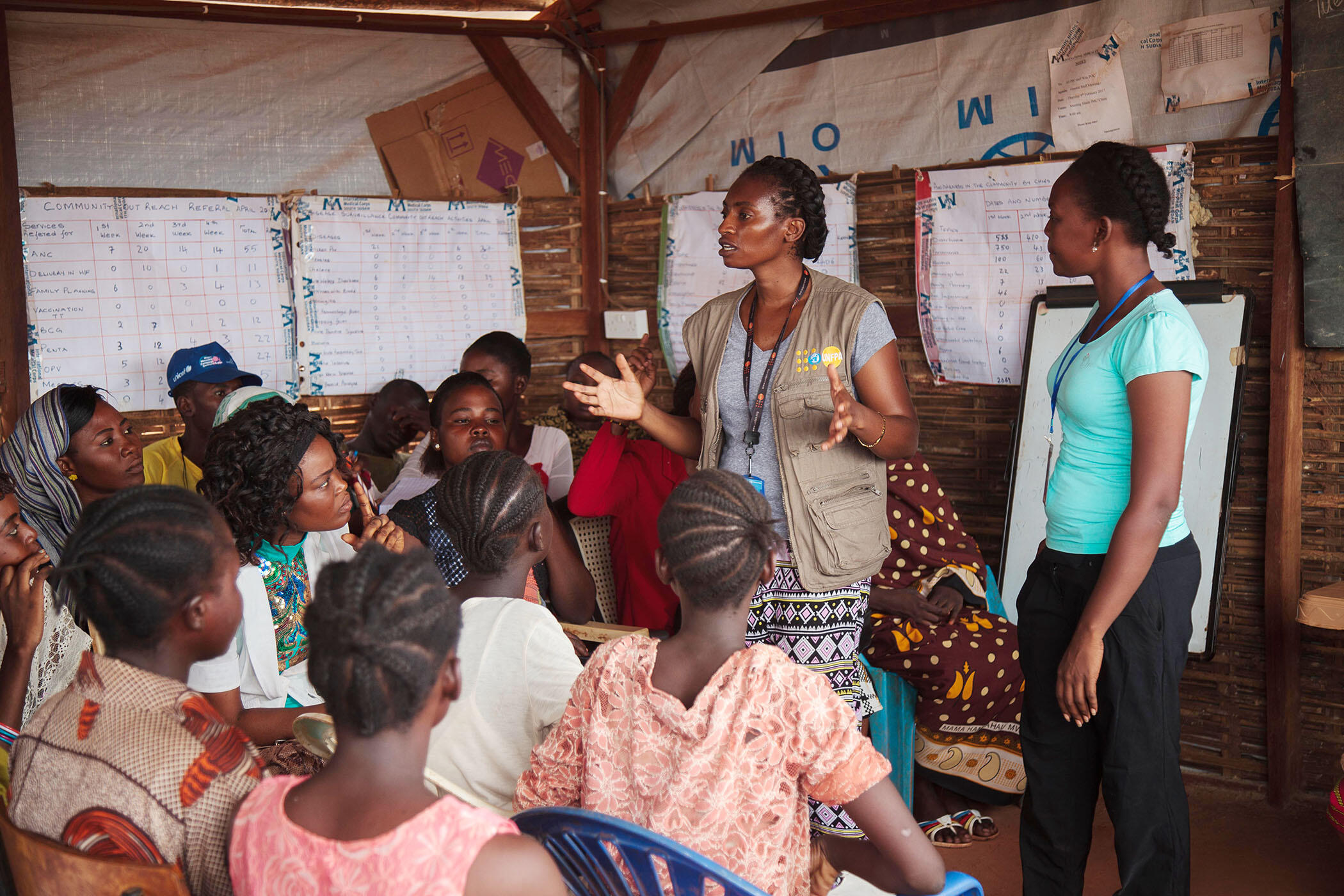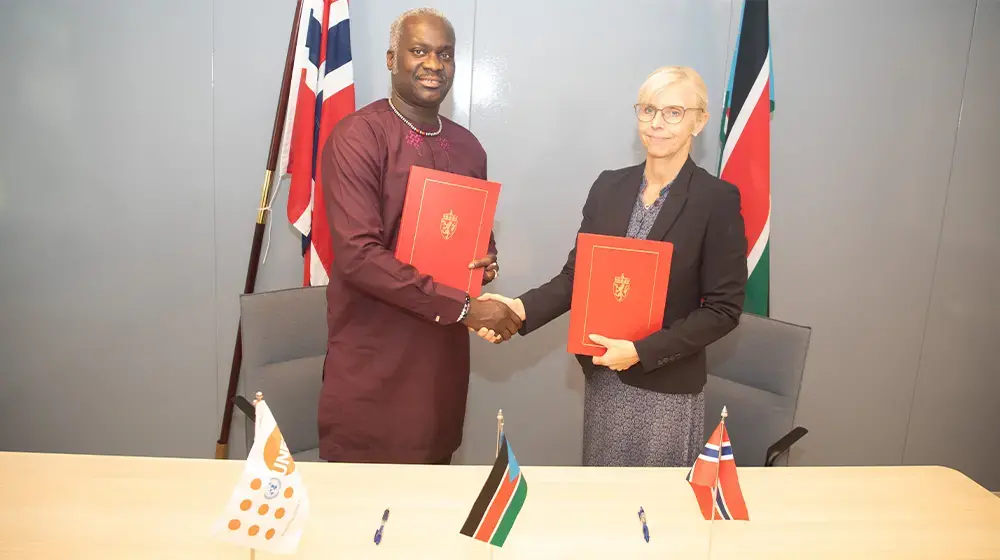“No! Family planning is not allowed here!”
Mr. Dut, a pharmacy assistant at Aweil State Hospital, blurted out these words when asked about the family planning services at the hospital. This man, in his 60s, has 30 children from five wives and expects his youngest wife, a 24-year-old woman, to give him three more children.
His reason for wanting more children despite the prevailing insecurity and poverty in the country? “It gives our community security. In times of conflict, we need more fighters to defeat the enemy.” He believes that any intervention that will reduce the self-defense capacity of his ethnic group – such as family planning – is suspicious and should not be entertained.
But when told about the economic burden on the family of having more children, the father of 30 reflected and backed down, realizing the flaws in his beliefs. Now he wants his sons to have smaller families.
Similarly, Ms. Awadia* a young mother who had just delivered her first baby in a UNFPA-supported maternity ward in Bentiu, proudly said she wants to have as much as 20 children. “I want to replace family members who have died from the armed conflict,” she says.
As she felt she had a duty to fix the past, family planning was not an option for her. However, when told that replacing the dead was not her responsibility, and giving birth many times can cost her life, she quickly made the connection and reconsidered family planning.
The mentality of Mr. Dut and Ms. Awadia is the norm in South Sudan. For many, family planning is a population control tool that should be resisted. Such cultural belief is reflected in the statistics. Roughly 1 in 50 women in South Sudan between 15 and 49 years old are using modern contraceptives – one of the lowest in East and South Africa.
This issue is not confined among the poor and those displaced by the conflict. South Sudan’s elites share the same beliefs.
During a recent family planning training in Juba, a member of the Parliament confronted one of the workshop organizers for promoting family planning. “This (family planning) is eroding our culture and promoting promiscuity!” he ranted.
One of the workshop facilitators calmed down the Parliamentarian and started a candid conversation about family planning. Following the exchange, the Parliamentarian changed his tune. “You people should have started this program long time ago,” he said. “I want you to take the message to the villages and let people know about the benefits of family planning.”
He then shared that lack of information was the reason he has so many children, some of whom he could not remember by names. Others have dropped out of school and have uncertain future.
These examples show the lack of awareness on the health, social and economic benefits of family planning among many South Sudanese. It also shows that without understanding the underlying motivation for individuals to shun family planning, it will be difficult to convince them to embrace it.
UNFPA fosters family planning in South Sudan by ensuring a reliable supply of a full range of modern contraceptives, strengthening national health systems, and promoting gender equality. In collaboration with the Ministry of Health and partners, UNFPA is conducting high-level advocacy meetings as well as community dialogues and sensitization sessions to increase awareness about rights-based family planning.
*Name changed to protect privacy.




